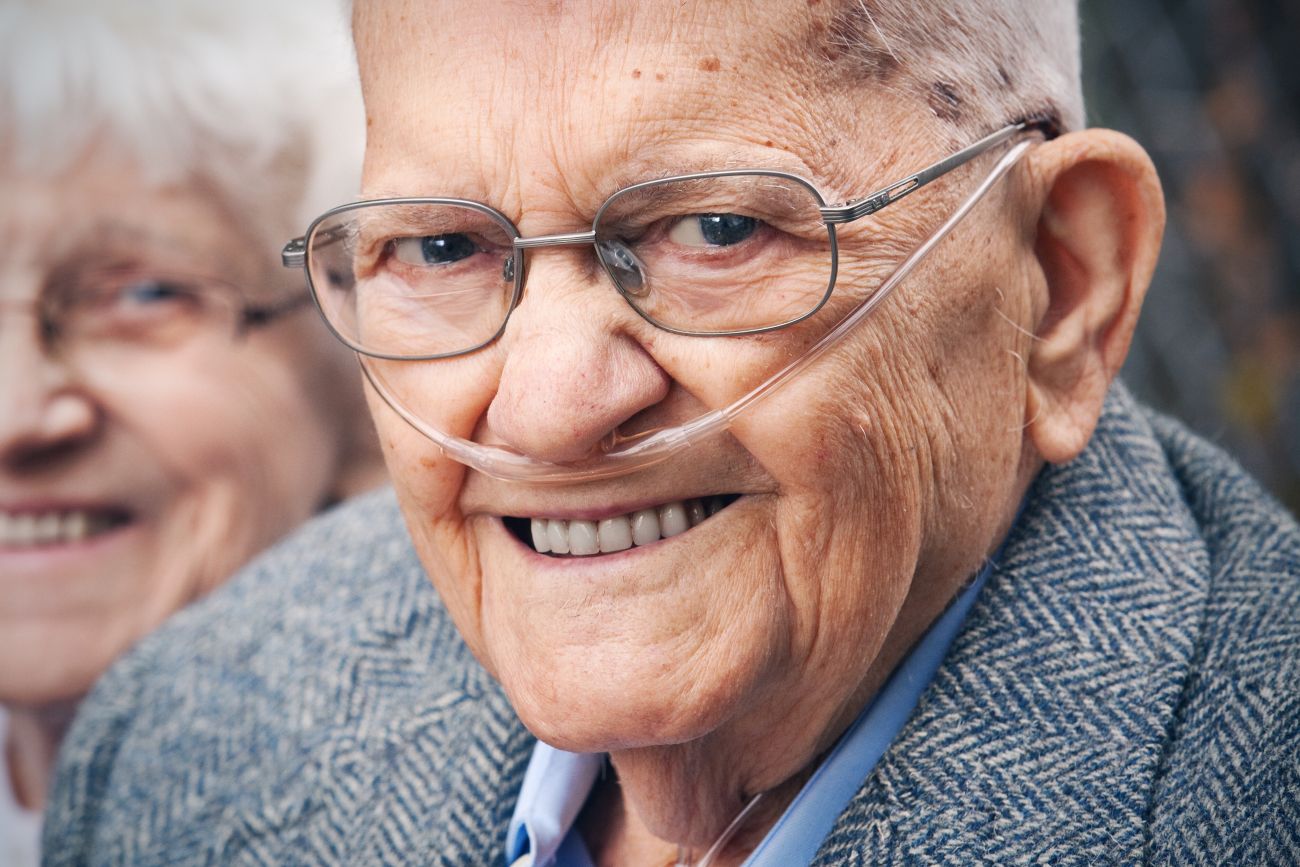Diseases strike every sufferer in unique ways. No matter what the outcome statistics or common prognosis data has to say. If you’re a senior, then dealing with ailments that other people might overcome can be extremely difficult.
Chronic obstructive pulmonary disease, or COPD, is a good example of an illness whose effects depend heavily on your prior health status. Here’s what to know about dealing with COPD as a senior.
Signs and Symptoms
Those who suffer from COPD typically find that the problems get worse with time. As a combination of emphysema and chronic bronchitis, it commonly involves complex symptoms that may prove hard to manage. The condition can be even more challenging for seniors, who may have spent years engaged in risky behaviors, such as smoking.
What begins as a minor cough or respiratory irritation can grow increasingly severe until it produces problems such as:
- A persistent, mucus-filled smoker’s cough;
- Sensations of tightness around the chest area;
- Shortness of breath, or dyspnea, that might be particularly noticeable when you physically exert yourself, and;
- Noisy breathing that may produce abnormal wheezing, whistling, or squeaks.
Some people with COPD notice that they contract other illnesses with greater frequency. For instance, you may get the flu or regular colds more often, which is particularly problematic for older people with weaker immune systems.
It’s important to realize that people with COPD vary widely. In severe cases, you might lose weight, develop swelling in your lower extremities, or have to deal with reduced muscular endurance. At worst, you might need emergency care, such as when you have:
- An abnormally fast heartbeat;
- Problems staying mentally alert;
- Bluish or gray lips and fingernail discolorations due to low blood-oxygen levels, and;
- Difficulty catching your breath or just talking normally.
Diagnosis
COPD can be difficult to diagnose properly. Many of its symptoms are common to other diseases as well. To make a more accurate assessment, your doctor will need to conduct thorough tests, such as:
- Pulmonary function tests, such as spirometry, gauge your lungs’ ability to inhale and exhale air and can potentially find COPD before the symptoms crop up;
- Imaging, including chest X-rays and lung CT scans, might help doctors determine whether you need surgery or lung cancer treatments;
- Lab tests clarify contributing factors, such as genetic disorders that can cause COPD, and;
- Arterial blood gas analysis tracks your lungs’ efficiency at ridding your blood of carbon dioxide and keeping it filled with oxygen.
Treatment
There’s a wide range of remedies that might offer relief if you have COPD. This makes it easier to choose an option that suits your lifestyle, budget, and personality.
Quit Smoking
Quitting smoking is a critical step for those who want to survive their bouts with COPD. It’s essential to cease immediately because any amount of smoking can hamper your breathing ability. Many patients even have to go as far as staying away from secondhand smoke, which isn’t always easy for seniors who live with others.
Medication
Other treatment options involve pharmaceutical solutions.
For instance, inhaler-delivered bronchodilators can reduce muscle tension near your airways to make it easier for you to breathe. Some patients need multiple bronchodilators for use before different activities. Your doctor may put you on a steroid treatment designed to keep your airways from getting inflamed. Also, many patients take antibiotics to reduce their chances of coming down with pneumonia, bronchitis, or other diseases that might make their COPD worse.
Medicines aren’t right for everyone. For example, you may already take other medications that won’t work with COPD drugs.
Therapy
Therapy-based treatments may be beneficial for those with serious or moderate symptoms. For instance, you can obtain an oxygen delivery device to use during your normal routine or while you sleep.
Some doctors favor pulmonary rehabilitation regimens — including combined exercise, nutrition, counseling, and education programs — which might help you regain higher levels of activity and manage your symptoms better without losing your independence.
Surgery
Caregivers usually reserve surgical treatments for the most serious patients. Procedures like lung volume reductions take out small sections of damaged tissue to leave behind healthy lung that has more room for expansion. Transplants involve receiving lungs from donors and bullectomies are when doctors remove air pockets that are causing problems.
Surgical intervention inherently carries risks that medication, therapy and lifestyle changes don’t. As such, if you’re already dealing with other age-related health problems, it might be a no-go.
No matter what kind of treatment your doctor recommends, it’s important to follow their instructions. Failing to adhere may increase your risk of death, raise your health care costs, or cause you to require therapy that you wouldn’t normally need — a potential issue for seniors on limited incomes.
Moving Forward After Your COPD Diagnosis
Although COPD doesn’t have a cure, being diagnosed with this condition isn’t necessarily the end of the line. Changing your lifestyle, by quitting smoking, adjusting what you eat, and being more physical, is an effective way to cope. Although taking such steps may seem like a huge leap for elderly patients who are accustomed to certain lifestyles, staying educated can make it far simpler to comply with your treatment regimen and realize positive gains.
Each senior’s journey with COPD will be unique, so it’s critical to stay informed. If you suspect you have any symptoms or used to smoke, then talking to your doctor is the first step.
